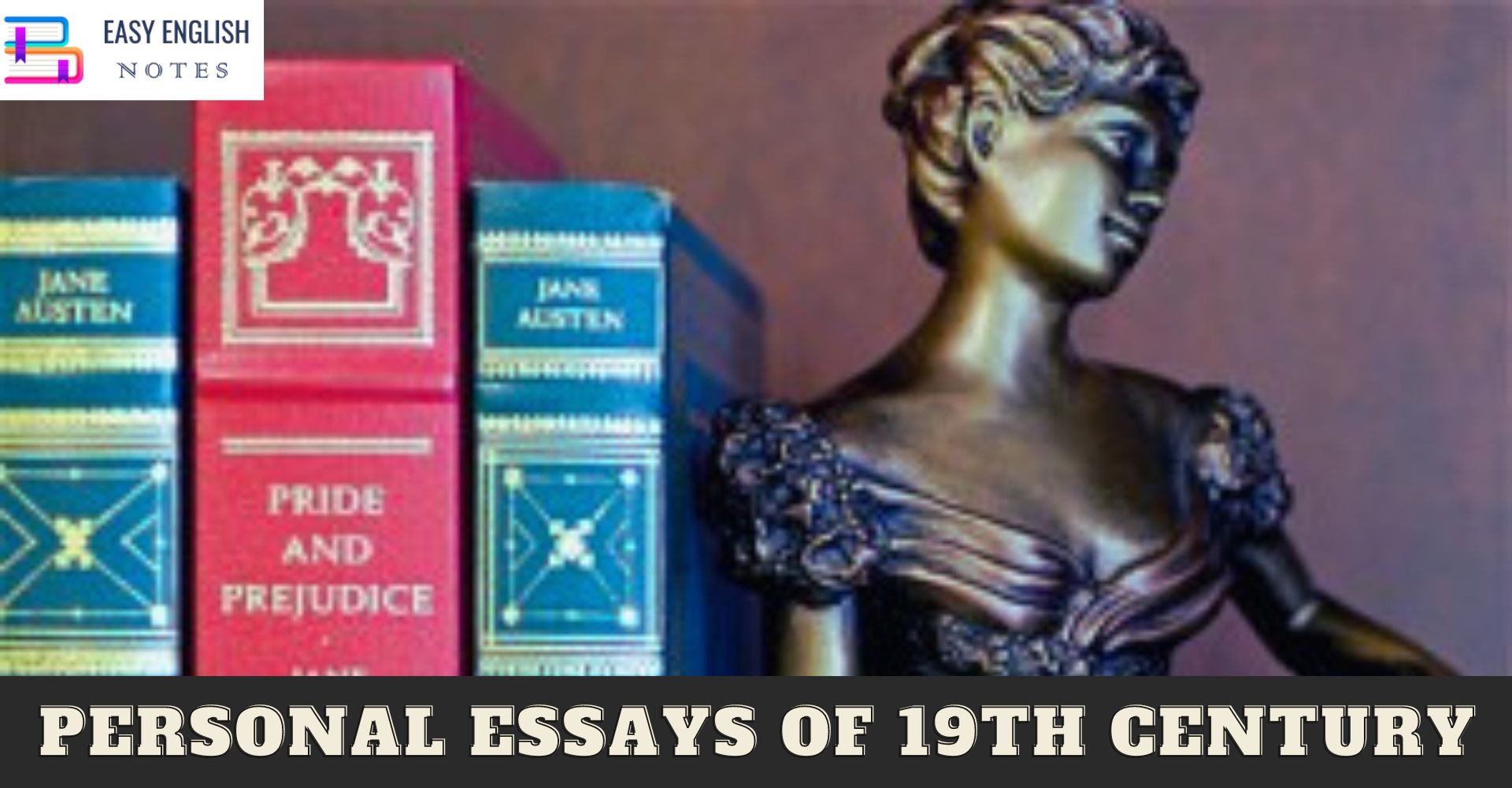A personal essays is a short work of autobiographical nonfiction characterized by a sense of intimacy and a conversational manner. It is also called a personal statement. The 19th century saw a flourishing of personal essays in English literature, with writers like Charles Lamb, Thomas De Quincey, William Hazlitt, and Thomas Babington Macaulay leading the way. These essayists used their own lives and experiences as a starting point for their writing, often exploring themes like identity, memory, and the human condition.
Lamb, Hazlitt, and De Quincey were the three major essayists of the nineteenth century. Like the poets, these essayists were personal and subjective; their essays are often candidly autobiographical, reminiscent, and self-analytic; and when the writers treated matters other than themselves, they tended to do so impressionistically, so that the content is seen reflected in the temperament of the essayist. These essayists also tackled diverse subjects like the Romantic poets and developed new styles and principles of writing.
Charles Lamb (1775-1834):
The position of Lamb among these romantic essayists is the most eminent. In fact, he has often been called the prince of all the essayists England has so far produced. Hugh Walker calls him the essayist par excellence who should be taken as a model. Unlike Addison and Steele who largely devoted the essay to instruct on social, morals and manners, Lamb concentrated on emotions rather than ideas or morals and manners. His essays are artfully artless in their personal, conversational tone and show his interest in curious persons and places. In these essays he talks intimately to the reader about himself, his own personality, his experiences and cheerful and heroic struggle which he made against misfortune. In 1820, he began publishing essays in London Magazine, later on collected in 1823 as The Essays of Elia and again in 1833 as The Last Essays of Elia.
Thomas De Quincey (1785-1859):
De Quincey spun literature out of his own life and emotions with little of Lamb’s oddity and little of Hazlitt’s boisterous energy. A versatile essayist and accomplished critic, De Quincey used his own life as the subject of his most acclaimed work, the Confessions of an English Opium-Eater (1822), in which he chronicled his fascinating and horrifying addiction to opium. The Confessions are an insightful depiction of drug-dependency and an evocative portrait of an altered psychological state. In his essays there is no attempt to appeal to our Reason as in Classical Age. His appeal is to our imaginative sympathy. Lamb’s contribution to the English essay also lies in his changing the general tone from formality to familiarity. He also shed once and for all the didactic approach which characterizes the work of most essayists before him. Lamb’s humour, humanity, and the sense of pathos are all his own; and it is mainly these qualities which differentiate his essays from those of his contemporaries. His essays are rich alike in wit, humour, and fun.
Also Read :
- Compare Hamlet with Macbeth, Othello and other Tragedies
- “The Pardoner’s Tale” is the finest tale of Chaucer
- Prologue to Canterbury Tales – (Short Ques & Ans)
- Confessional Poetry – Definition & meaning
William Hazlitt (1778-1830):
Hazlitt stands in the very first rank of the English essayists. He has been repeatedly bracketed with Lamb. His essays may broadly be divided into two categories: (Critical Essays, and Miscellaneous Essays). The Miscellaneous Essays, including volumes such as Table Talk, Sketches and Essays Winterslow (Essays and Characters reveal the wide range and variety of his interests). In whatever he did or said Hazlitt was an enthusiast. His essays reveal the zest of his enjoyment of life and nature. Hazlitt’s Essays are autobiographical in character. He belongs to the group of personal essayists and is in the direct tradition of Montaigne who was his model. Hazlitt has that garrulousness of the personal essayist which imparts to the essay a rare human interest and charm. Hazlitt’s prose-style is one of the glories of literature. He had a rare command over words, understood their full significance, and could define them accurately and precisely.
Thomas Babington Macaulay (1800-1859):
Macaulay wrote extensively as an essayist, on contemporary and historical socio-political subjects, and as a reviewer. Macaulay’s essays are immensely readable and vigorous. They dispose judgement with majestic ease, but their inability to perceive subtle qualifications and shades of character diminishes their critical value. They are all laced with partisan zeal. Macaulay admitted the occasional and transient value of his essays. However, he did feel that the later ones were markedly superior to the earlier ones.
Conclusion:
Like the romantic poets, the personal essayists were subjective in character and expressed personal feelings and emotions in their essays. Overall, the personal essays of the 19th century were characterized by their subjective nature and their focus on individual experiences and emotions. These writers helped to establish a new approach to the essay form, one that valued personal expression and creativity over didactic instruction. Today, their essays remain an important part of the English literary canon, and continue to inspire and move readers with their insights into the human condition.
PLEASE HELP ME TO REACH 1000 SUBSCRIBER ON MY COOKING YT CHANNEL (CLICK HERE)











